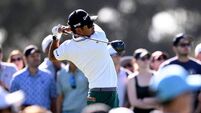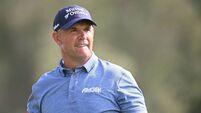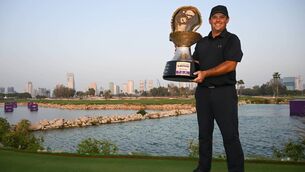Learning to play the mental game
True to form, though, he was quick to turn the question to his own benefit.
"It's a big compliment and I'm very happy to be compared with the likes of Phil Mickelson," he declared with a broad smile. "For people to say I should have won a major by now or that I should go and win one in the future, that's a big compliment. I've come a long way for somebody to be saying that.
















